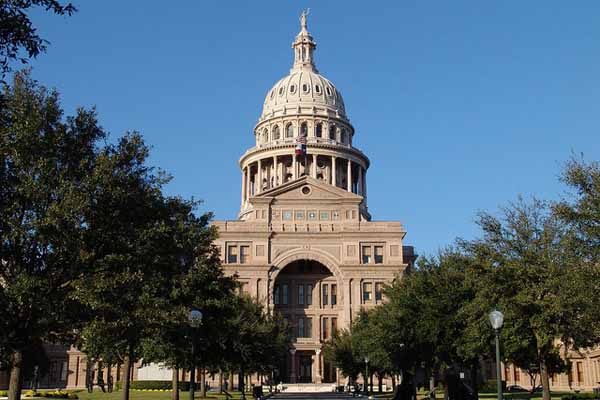
The strangest session of the Texas Legislature in recent memory wrapped up with a wild and twisty final weekend, and the Texas Medical Association was in the thick of it as it tried to get as many of medicine’s priorities to the governor’s desk as possible.
Before sine die, the House of Medicine came away with gigantic victories on prior authorization, telemedicine expansion, Medicaid, and more. We’ll have a fuller assessment later on the impact of what just happened over these past four-plus months. For now, here’s a quick rundown of some of medicine’s biggest wins of 2021. (Caveat: Except for a couple of cases as noted, these measures have yet to be signed by the governor.)
Prior authorization: Striking gold
The House of Medicine made curbing insurers’ onerous prior authorization practices a priority during this session, and succeeded in a big way with passage of House Bill 3459 by Rep. Greg Bonnen, MD (R-Friendswood). The bill will allow physicians to earn a “gold card” out of the prior authorization process for certain services if they demonstrate a high percentage of prior auth approvals for those services. Also, HB 3459 requires utilization reviews to be conducted by a Texas-licensed physician in the same or similar specialty as the patient’s physician.
Scope bills dead
Medicine’s advocates stopped every troublesome attempt by nonmedical professionals to creep into the practice of medicine during this session including allowing pharmacists to order immunizations for and vaccinate children beginning at 3 years old; granting nurse practitioners independent prescribing authority; allowing psychologists to prescribe; and giving midwives diagnostic and drug treatment authority. Ophthalmologists reached a key compromise with organized optometry to prevent allowing optometrists the authority to perform surgeries.
Medical billing tax avoided
Thanks to House Bill 1445 by Rep. Tom Oliverson, MD (R-Cypress), already signed by the governor, Texas law will no longer consider medical billing services to be insurance services. That’s major for medicine because it eliminates a planned tax on those services that outsourced medical billing companies would have passed on to physicians, with patients also facing increased costs as a result.
Stopping youth e-cig use
Senate Bill 248 by Sen. Nathan Johnson (D-Dallas), one of medicine’s biggest public health wins, would require e-cigarette retailers to obtain permits and sets up a framework to regulate those retailers the same way as other tobacco product dealers are regulated. The bill was aimed at curbing vaping in general and youth e-cigarette use in particular.
No more PBM clawbacks
Pharmacy benefit managers (PBMs) will no longer be able to “claw back” millions in “remuneration fees” after an insurance claim is complete. House Bill 1763 by Representative Oliverson, already signed by Gov. Greg Abbott, will outlaw those clawbacks.
Medicaid progress
While physicians once again didn’t get a payment increase in Medicaid, lawmakers did make notable progress in coverage. Women who give birth will now have coverage for six months postpartum, instead of the current 60 days, thanks to House Bill 133 by Rep. Toni Rose (D-Dallas). And children will have six months of continuous coverage in Medicaid, with a household eligibility check for an additional six months of coverage under House Bill 2658 by Rep. James Frank (R-Wichita Falls). Also, House Bill 4 by Rep. Four Price (R-Amarillo) makes permanent many of the allowances for expanded telemedicine payment in Medicaid and the Children’s Health Insurance Program as a result of the COVID-19 pandemic, if the state determines those services are clinically sound and cost-effective.
Money in the right places
Lawmakers listened to medicine’s advocates in many key areas. The final budget fully funds the state’s graduate medical education program, allowing preservation of the target ratio of 1.1 first-year residency slots for every medical school graduate in order to keep Texas medical school students in Texas. The legislature gave a slight bump to women’s health funding over the next two years, maintained funding for early childhood intervention services, and increased funding for the Texas Mental Health Care Consortium by nearly $20 million. And an increase in pediatric Medicaid payments in the near term will become a possibility as Texas Medicaid will be required to conduct a study on the impact of increasing payments for treating children up to age 3.